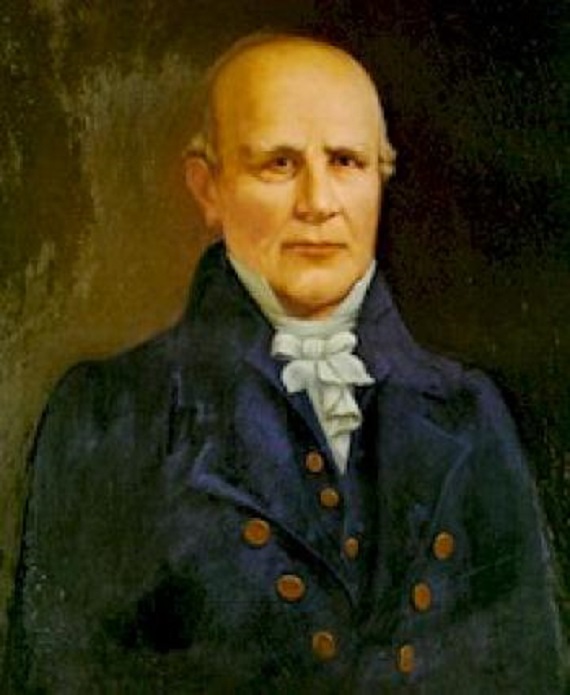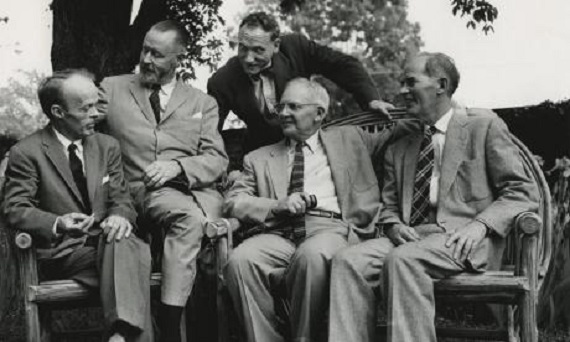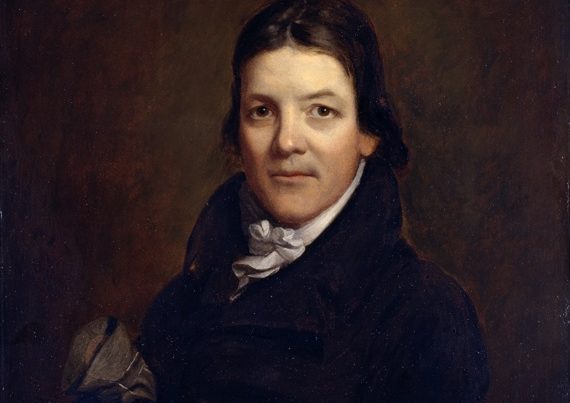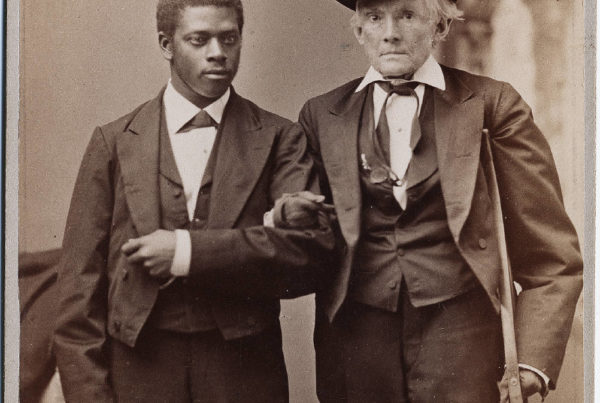Although I have been in exile many years, I am a Tar Heel born and a Tar Heel bred, and when I die I will be a Tar Heel dead.
Nathaniel Macon is a perfect subject for a Tar Heel. He is not well-known today, but he is the best possible example of the true spirit of North Carolina. And comparing Macon with the politicians of today gives us a benchmark as to how dreadfully far America has degenerated from the principles on which it was founded.
In his time Macon was widely admired by Americans as the perfect model of a republican statesman. By republican I mean republican with a small “r.” I definitely do NOT mean the Republican Party, which, from its very beginning, when it stole the name from better people, right up to this minute, has stood for the exact opposite of what Nathaniel Macon meant by republican government.
When North Carolina had occasion in the early 20th century to pick two figures to represent us in the Statuary Hall in the U.S. Capitol, we chose Zeb Vance and Charles Aycock. At the time it was natural to honour Vance who had seen us through the horrible war of conquest waged against us, and Aycock, who removed the last vestiges of Reconstruction. That’s understandable, although it overlooked Macon, who might easily qualify as the greatest Tar Heel of all.
Macon was born in 1758 on a plantation in Warren County, where he lived his entire life. He was a student at what is now Princeton when the War of Independence broke out in 1775. He left school and joined the New Jersey militia on active service, and then went home and joined the North Carolina troops. He was offered but refused a commission and he refused also the bounty that was paid for enlisting. He served in the Southern campaigns until he was elected to the General Assembly near the end of the war while he was still in his 20s. In the next few years he was offered a place in the North Carolina delegation to the Continental Congress which he declined. It is noteworthy that his brother John voted against ratification of the new U.S. Constitution in both conventions of the sovereign people of North Carolina to consider that question; and that our State did not ratify until the first ten amendments were in place to limit the federal government, especially the Ninth and Tenth.
As soon as the U.S. government went into operation, Hamilton and his Yankee friends, claiming that they were acting in behalf of “good government,” began to turn the government into a centralised power and a money-making machine for themselves by banks, tariffs, government bonds, and other paper swindles that would be paid for out of the pockets of the farmers, who produced the tangible wealth of the country. To oppose this Macon accepted election to the U.S. House of Representatives for the Second Congress. He served in the House 24 years and the Senate 13 years—representing North Carolina in congress from 1791 to 1828, from the age of 33 to the age of 70 when he retired voluntarily. He was Speaker for six years, chairman of the foreign affairs committee in both the House and Senate, and finally President Pro Tem of the Senate. He received numerous overtures to be a candidate for Vice-President and was twice offered appointments to the Cabinet, all of which he turned down. During all this time he never neglected his duties as justice of the peace and militia officer in Warren County. His last public service was to preside over the North Carolina constitutional convention of 1835, and he died two years later. The city of Macon, Georgia, Randolph-Macon College, and counties in AL, TN, and IL as well as NC were named for him.
During all this time Macon was admired because he never changed from the principles with which he began. What were these principles? The federal government should be tightly bound by the Constitution. It should not tax the people and spend money any more than was absolutely necessary for the things it was entitled to do, nor go into debt, which was just a way to make the taxpayers pay interest to the rich. Eternal vigilance was the price of liberty. Power was always stealing from the many to the few. Office-holders were to be watched closely and kept as directly responsible to the citizens as possible. A few words from Macon in Congress often stopped bills that proposed supposedly attractive measures. It might be nice to pay for everybody to go to college, or to build a fancy temple for the Supreme Court, or to issue bonds for rich people to invest in, or overturn a dictator 5,000 miles away. But the politicians had no right to take away the citizens’ earnings for whatever they thought was good. The Constitution told them what they could do.
History showed that the stronger and more centralised a government became the less free were the people. And the richer the government and its politicians and beneficiaries became, the poorer were the people. That was what had always happened, but America, with governments created by the people, had a chance to avoid the bad tendencies of government of the past. As time went on, Macon realised more and more that preserving true republican principles was a losing cause, but in the company of John Randolph and John Taylor he never wavered even when most of his fellow Jeffersonians were willing to yield some ground.
The offices Macon held are not the important thing. Today politicians scramble to get into office so they can have honour and importance as well as make money and flatter their vanity. But Macon, like Washington and Jefferson, was not important and respected because he was elected to office. He was elected to office because he was important and respected. He never campaigned for an office. He never attended a party caucus. He never promised anyone patronage to support him. Macon was elected over and over and revered because of what he was.
John Randolph of Roanoke, literally on his death bed referred to Macon as the wisest man he ever knew. Thomas Jefferson called him “the last of the Romans” and he meant that as a high compliment—that Macon was the model of a selfless patriot and a principled republican. In fact, Macon was more Jeffersonian than Jefferson himself.
The American Founders much admired the heroes of republican Rome—which is why George Washington has a statue in a toga— Roman heroes like Cincinnatus, who was plowing his fields when they came to him and said the republic was in peril. He left, took command of the army, defeated the enemy, and then returned to continue plowing his fields. He sought nothing for himself, only to serve his country and maintain its principles. This was the kind of republican hero that Macon represented to Americans. He valued the respect of his countrymen but had no ambition for profit or glory for himself. It was men ambitious for glory and profit who had subverted freedom throughout history.
A negative opinion of Macon was expressed by President John Quincy Adams in his secret diary. He excoriated Macon for being responsible for defeating many of Adams’s schemes for a stronger and more meddlesome federal government. Adams, in the typical Yankee way, thought Macon opposed him only because he was not as smart as Adams himself. This even was written in secret at the same time Adams was trying to persuade Macon to be his Vice President..
Good Americans of the Founding and for several generations thereafter praised the idea of “republican simplicity.”A free government of the people did not need the fancy costumes and ceremonies of European courts. This is why Jefferson walked to his inauguration in a plain suit, delivered his state of the Union message in writing rather than preaching to the assembled congressmen like a monarch on a throne, and made his White House social events as informal as possible.
Here is something else important to note about early American history. Genuine Southern aristocrats like Jefferson and Macon believed in government responsible to the people. The Northerners, who had no claim to aristocracy, wanted to use the government to aggrandize themselves. President John Adams rode around in a coach with white horses and insisted on being addressed as “Your Excellency.” When Macon was living at ease among his 70 slaves, John Adams was fortifying his house in fear that American mobs might attack him like they were doing in France. Of course, Macon, like all the other Jeffersonians, knew without doubt that Northern attacks on slavery were malicious, counter-productive, and driven by lust for power rather than benevolence.
Here is another interesting fact about the North and the South that never gets in the history books. The history of the Revolution is written as if those who were fighting it were striving to achieve a strong central government for Americans. This is a lie promoted during the 19th century. It was true of some Revolutionary soldiers like Hamilton and Marshall. But it was not true of John Taylor, James Monroe, and St. George Tucker of Virginia, Nathaniel Macon of North Carolina, Thomas Sumter and Andrew Pickens of South Carolina, or James Jackson of Georgia. These and many others had fought the Revolution to get out from under a government that was levying taxes and sending troops and bureaucrats to restrict the liberty and prey on the property of Americans. That did not want to establish a government that had too much power and was too remote from the people even if it was an American government. And, while New Englanders who had served three inactive months in the militia lined up to claim federal pensions for Revolutionary War service, the Southerners refused to accept money taxed from the people for doing their duty.
Government had to be kept as close to the people as possible. North Carolina in the beginning elected the General Assembly anew each year, and the General Assembly chose the governor for a one-year term. Macon opposed the change to longer terms in the constitutional revision of 1835. You can imagine what he thought about U.S. Senators serving six years and federal judges serving for life. These were no longer responsible to the people. Officials had to be known to the people and reviewed frequently to make sure they were behaving and not exceeding their powers. Politics should not be a profession. Politicians should make their own living just like everyone else. They were just citizens performing temporarily a service who would soon return to private life and live under the laws they had made.
Macon owned much land and many slaves and was a national hero. Yet he lived very simply in a rather remote location—so remote that I confess I once spent half a day driving around Warren County with three different sets of directions and never found it. He attended the Baptist Church accompanied by his slaves. He was buried very unostentatiously. As far as I can find only one portrait was ever painted of him, the one that was customarily made of Speakers of the House.
Nathaniel Macon summed up his philosophy in advice to a young Tar Heel: “Remember, you belong to a meek state and a just people, who want nothing but to enjoy the fruits of their labour honestly and lay out the profits in their own way.”
By the end of his life Macon had realised that the cause of republicanism was lost at the federal level, and also that the North was determined to exploit and rule the South. South Carolina tried in 1832 to use “nullification,” state interposition, to force the federal government back within the limits of the Constitution. After he read Andrew Jackson’s proclamation against South Carolina, Macon told friends that it was too late for nullification. The Constitution was dead. The only recourse was secession—there was nothing left but for the South to get out from under the “Union” and govern itself.
Thirty years later, in the spring of 1861, the North Carolina convention met to unanimously ratify secession. Nathaniel Macon’s son-in-law, Weldon N. Edwards, was in the president’s chair.
Nathaniel Macon left us a invaluable legacy from which we can learn much about the way things should be.







